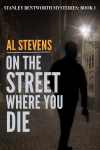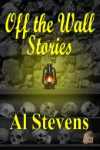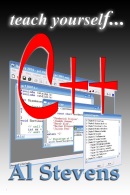Shift Happens
In the previous installment, I discussed writing in the future, but I didn't actually get past the present. That was the foundation. To get to the future let’s continue with the “now,” with the ongoing paradigm shift from traditional print publishing to electronic publishing. That's the framework. Soon we'll add siding and a roof.
What does an author need in order to write and publish an e-book? The technology is here and available. If I’m telling you anything you don’t already know, you’re already a bit behind the curve and need to get caught up. But by getting the basics out in the open, we can be on the same page.
Word processors, standard e-book file formats, converter programs, and online distribution services all combine to make possible the publication of authors’ words and images as e-books. Social networking, websites, and blogs provide for a measure of promotion. You know that because you've heard it countless times.
And we have all that today. On the cheap. If you already have a computer, an internet connection, and a publishing-centric skill set, you can write, publish,and promote an e-book without spending a dime. How? By using free software and free online services for everything. That’s right, it’s all free.
You will hear that you absolutely must not under any circumstances edit your own book or design your own cover. Conventional wisdom says, you suck at it, you'll do it wrong, leave it to the professionals. (Actually, it's those conventional professionals who say it. Guess why.) I'm not going to tell you that. It isn't my call. I don't know what you can and cannot do. It's your book, your money, and your decision.
Why e-books? Why, indeed. Because they are the wave of the present and the tsunami of the future.
Do you doubt that the physical book is in decline? Well, look around. It’s already happening in some quarters. Remember when we always got a fat trade paperback book explaining the use of our new software? Or a CD-ROM? Now we get a URL printed on the box. Box? What box? Surf the web, pay online, download. We don't need no stinkin' box.
Look at the prices of mass-market and trade paperbacks in the stores. Not the brick and mortar bookstores but in Walmart, Sams, and that ilk. Dirt cheap. And that's all that will be left when the last bookstore closes. Publishers can't make money at those prices. Neither can writers. The only avenue of reasonable option is digital publication and online distribution.
The publishing industry until recently has strenuously resisted any shifts away from print publication. They were in classic denial because revenues and a monolithic business model were at stake. Seeing what's coming, though, many of the big publishers are coming around. But there is still an undercurrent of concern, given the paranoia that accompanies the realization that readers can readily share unauthorized copies of digital books.
Did I just say the C-word? I did. Copies. Do you enjoy watching self-righteous sanctimony in full bloom? Go on any readers discussion group and bring up the subject of e-book pirating.
Because of the potential for unauthorized copying, another big change is coming. I predict that the digital revolution will eventually turn the world of intellectual property law on its ear. Of this prediction I am sure. You might not like it, you might fight it and argue that it can never be, should never be, but to resist is futile. It will happen. It will take a while, because powerful watchdog institutions exist whose main objectives are to preserve the status quo, protect the intellectual property of huge conglomerates, and perpetuate the watchdogs’ own existence. They are formidable, but they will expire.
I'll talk about ways we might use technology to manage protected distribution in a coming installment. After I get it figured out, that is.
Back to the digital paradigm shift. What does an author do about it? First learn to write for digital media. Actually, there’s not much to change there. A book is a string of narrative text and perhaps images organized into chapters. A new method of delivery does not change a book’s contents or how they are authored. Not yet, anyway.
The only decision authors will make in the near future is whether to self-publish e-books or to engage and use the services of an e-publisher. You’ll get lots of advice about which way to go, but not here. I am one of the few authors in this business who admits to not having that answer. Things are changing too fast. My crystal ball is cloudy on that issue. I don’t have an agenda either. That’s rare when words about publishing get tossed about. But it’s fun to watch.
I am also among a growing number of authors who have self- and trade-published, and I plan to continue doing that. That’s a good foothold on firm ground whichever way the tides change, the winds blow, the towel sticks to the wall.
Add metaphor and mix.
Lots of rambling here. In the next installment I might actually get down to speculating about what’s coming. Or could be coming. Or should be coming.
What does an author need in order to write and publish an e-book? The technology is here and available. If I’m telling you anything you don’t already know, you’re already a bit behind the curve and need to get caught up. But by getting the basics out in the open, we can be on the same page.
Word processors, standard e-book file formats, converter programs, and online distribution services all combine to make possible the publication of authors’ words and images as e-books. Social networking, websites, and blogs provide for a measure of promotion. You know that because you've heard it countless times.
And we have all that today. On the cheap. If you already have a computer, an internet connection, and a publishing-centric skill set, you can write, publish,and promote an e-book without spending a dime. How? By using free software and free online services for everything. That’s right, it’s all free.
You will hear that you absolutely must not under any circumstances edit your own book or design your own cover. Conventional wisdom says, you suck at it, you'll do it wrong, leave it to the professionals. (Actually, it's those conventional professionals who say it. Guess why.) I'm not going to tell you that. It isn't my call. I don't know what you can and cannot do. It's your book, your money, and your decision.
Why e-books? Why, indeed. Because they are the wave of the present and the tsunami of the future.
Do you doubt that the physical book is in decline? Well, look around. It’s already happening in some quarters. Remember when we always got a fat trade paperback book explaining the use of our new software? Or a CD-ROM? Now we get a URL printed on the box. Box? What box? Surf the web, pay online, download. We don't need no stinkin' box.
Look at the prices of mass-market and trade paperbacks in the stores. Not the brick and mortar bookstores but in Walmart, Sams, and that ilk. Dirt cheap. And that's all that will be left when the last bookstore closes. Publishers can't make money at those prices. Neither can writers. The only avenue of reasonable option is digital publication and online distribution.
The publishing industry until recently has strenuously resisted any shifts away from print publication. They were in classic denial because revenues and a monolithic business model were at stake. Seeing what's coming, though, many of the big publishers are coming around. But there is still an undercurrent of concern, given the paranoia that accompanies the realization that readers can readily share unauthorized copies of digital books.
Did I just say the C-word? I did. Copies. Do you enjoy watching self-righteous sanctimony in full bloom? Go on any readers discussion group and bring up the subject of e-book pirating.
Because of the potential for unauthorized copying, another big change is coming. I predict that the digital revolution will eventually turn the world of intellectual property law on its ear. Of this prediction I am sure. You might not like it, you might fight it and argue that it can never be, should never be, but to resist is futile. It will happen. It will take a while, because powerful watchdog institutions exist whose main objectives are to preserve the status quo, protect the intellectual property of huge conglomerates, and perpetuate the watchdogs’ own existence. They are formidable, but they will expire.
I'll talk about ways we might use technology to manage protected distribution in a coming installment. After I get it figured out, that is.
Back to the digital paradigm shift. What does an author do about it? First learn to write for digital media. Actually, there’s not much to change there. A book is a string of narrative text and perhaps images organized into chapters. A new method of delivery does not change a book’s contents or how they are authored. Not yet, anyway.
The only decision authors will make in the near future is whether to self-publish e-books or to engage and use the services of an e-publisher. You’ll get lots of advice about which way to go, but not here. I am one of the few authors in this business who admits to not having that answer. Things are changing too fast. My crystal ball is cloudy on that issue. I don’t have an agenda either. That’s rare when words about publishing get tossed about. But it’s fun to watch.
I am also among a growing number of authors who have self- and trade-published, and I plan to continue doing that. That’s a good foothold on firm ground whichever way the tides change, the winds blow, the towel sticks to the wall.
Add metaphor and mix.
Lots of rambling here. In the next installment I might actually get down to speculating about what’s coming. Or could be coming. Or should be coming.











1 Comments:
My first published novel, Arirang, is a hefty 500 pages of a pretty good read. Tonight, Pam said that she didn't take it with her on the cruise because it was too heavy. She has trouble reading it very long because she is accustomed to her ereader and it's too heavy. Her spouse bought it for her or she would have an ebook instead... www.dkchristi.webs.com author of Ghost Orchid, a much smaller read at 166 pages in print and both books available in ebooks.
Post a Comment
Subscribe to Post Comments [Atom]
<< Home